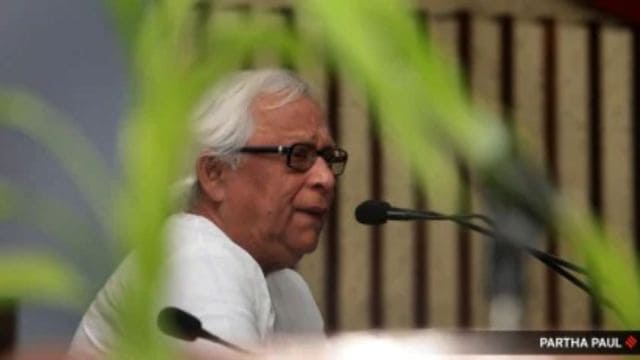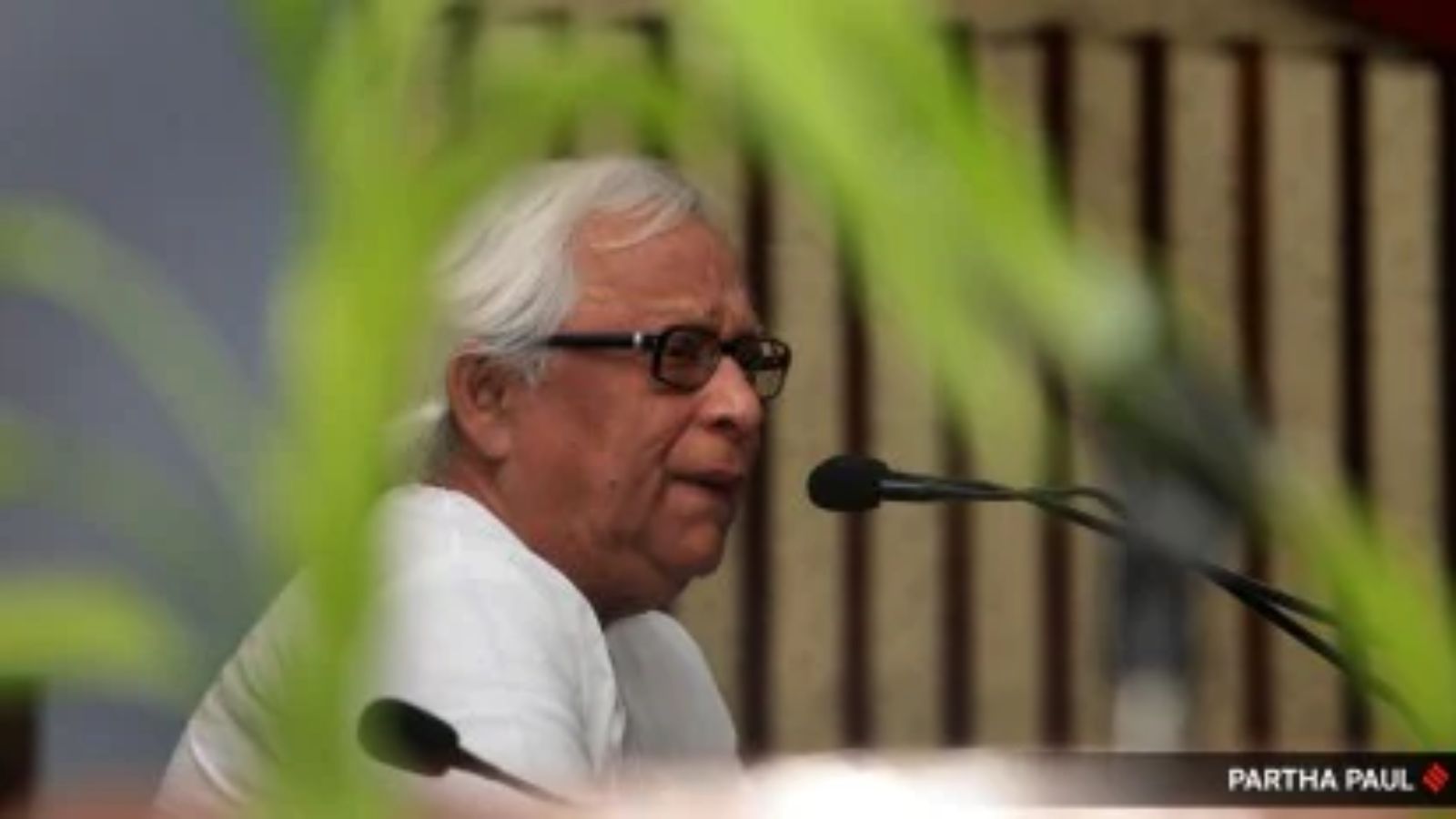
Buddhadeb Bhattacharjee came from a conservative family. Sukanta Bhattacharya, the renowned revolutionary poet of Bengal who died of tuberculosis at the age of 20, was his uncle, but the family disapproved of Sukanta’s politics, as indeed they would have of Buddha’s. Buddha’s politicisation came from a different source, the Bengal of his youth which was not only intellectually and culturally vibrant, but also had a remarkable legacy of communism that had been inherited largely by the CP(M) after the split.
After a visit to India, Harry Pollitt, the British communist leader, had reportedly said that he would give his right-hand for a communist party like India’s. Its cadres were dedicated, disciplined, austere, untouched by corruption and firmly ensconced within the rich intellectual and cultural ethos around it; this was even more true of Bengal. Besides, India, especially Bengal, had an obvious unfinished task at the time of Independence – to carry forward the democratic revolution by instituting land reforms. The Communists alone could accomplish this. Lenin had theorised about such a conjuncture and the communists were clear about this task.
This clarity of vision and their organisational strength gave the communists in West Bengal an appeal that drew Buddha and numerous young persons of his generation to communism. In fact, starting from the Fifties, the communists appeared to be an irresistible force in West Bengal which could be kept away from power only through ruthless repression. Not surprisingly, a lull in repression after the Emergency allowed the Left Front to come to power in the state in 1977. Buddha, who had been a prominent student and youth leader and state secretary of the Democratic Youth Federation of India, was inducted at the age of 33 into Jyoti Basu’s cabinet, one of five young men that Pramode Dasgupta, the state secretary of the CPI(M), had been mentoring to take over responsibilities from the older generation.
Buddha spent more than half of his adult life as a minister in the Left Front government, first as minister of culture, then as home minister, and finally, as chief minister. There were two breaks in his ministerial tenure. Both were extremely brief. He did write a play during one of these interludes, which was also staged in Kolkata, but his ministerial responsibilities were to prevent him from writing more. This, however, also means that his life, its highs and lows, became inseparable from the history of Left Front rule.
The Left Front government, of which Buddha was an important part, played a stellar role in carrying out the unfinished task of West Bengal’s democratic revolution. Operation Barga, under which sharecroppers, till then legally unrecognised, got registered and hence could claim credit from banks for carrying out cultivation; the insistence that whoever sowed the crop could alone reap the harvest; the distribution of ceiling-surplus land to the landless; and the resurrection of the panchayat system that produced a vivacious grassroots politics, were some of the achievements of Left Front rule which not only reduced the power of the jotedars and reinvigorated participatory democracy, but also contributed greatly to West Bengal’s economic growth. Indeed, for the decade of the Nineties, West Bengal became the top-ranking state in terms of agricultural growth in India.
Once this phase was over, the Left Front government was less clear about what it should do next. The need for industrialisation was obvious, but how should industrialisation be accomplished? Should West Bengal follow the conventional route of enticing capitalists to set up units in the state? Or, should it form cooperatives in agriculture both to maintain the tempo of agricultural growth and also to start a range of industries that would be owned by the peasants at large? Should it set up industrial units in the public sector? While the last of these was ruled out because of fiscal constraints, Buddha as chief minister opted for the first. His decision may have been prompted by a sense of pragmatism; it may have been influenced by China’s remarkable success while following this conventional route; and it may have been clinched by the interest shown by the Tatas in establishing a small-car manufacturing plant in West Bengal. But whatever the reason, the Left Front government’s attempt to acquire land from peasants for this project started a process of alienation of the peasantry from it that eventually led to its defeat, and to Buddha’s withdrawal from active politics.
Meanwhile, the party had grown too flabby — it was no longer one for which Pollitt would have given his right hand.
This is not to say that after the initial years, the Left Front’s contributions were insignificant. It did pioneer the idea of autonomous councils within the state as a counter to statehood demands, just as the Left had pioneered the idea of states being formed on linguistic lines. The Darjeeling Gorkha Hill Council, in whose formation Buddha, as home minister, had a direct role, was a product of this. Many states in India at present, including West Bengal, are again facing statehood demands from various internal resident groups. The framework of the Council provides scope for adjusting the devolution of resources and powers in a manner that can obviate the need for any separate state — exploring this would be a testimony to Buddha’s legacy.
Buddha’s life had been one of exemplary simplicity and austerity. He lived, in a manner resembling one’s image of a Communist, in a two-room apartment that needed urgent repairs. He had been ailing for quite some time, because of which he had asked to be relieved from the membership of the Politburo. One may agree or disagree with Buddha but one cannot quarrel with the fact that he was a truly noble and outstanding figure in West Bengal’s political landscape.
The writer is former professor of economics at JNU
© The Indian Express Pvt Ltd
First uploaded on: 10-08-2024 at 11:49 IST



